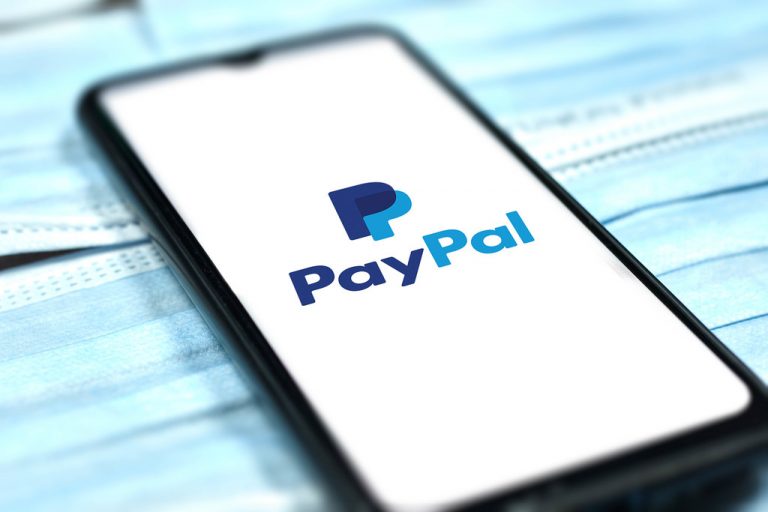What are the cons of not having a checking account? This question is often asked by many people today. We have created this post to assist you greatly. You can either bury your money under your mattress or you could pay cash for everything.
However, most individuals utilize a checking account in today’s modern internet environment. There are many options for checking your bank account or credit union.
Locals might be a better choice. credit union a bank where you can make bonds with people who care about your community. You’ll be able to pick an account that matches your requirements and preferences while still providing you with checking account benefits and rewards, thanks to this flexibility.
What are the disadvantages of not having a checking account?
There are many downsides to having a checking bank account.
Checking accounts, on the other hand offer significant benefits that can benefit your life and your economic health regardless your age. Continue reading to learn about the disadvantages that people without checking accounts face.
Inadequate Money Management Planning

A checking account has the advantage of teaching young people financial literacy and financial management. This information is often unavailable to those who don’t have a check account.
It’s preferable to create a joint bank account with your kid so that they may learn how to write checks, pay bills, balance the checkbook, and budget for future needs. You invest in your child’s financial literacy and education by providing advice and preventing significant financial blunders.
The SmartStart Checking or another teen-friendly account can help your child establish a connection to the bank or credit union.
This connection allows them to access financial workshops, conferences, as well as other financial instruments like auto loans and savings accounts.
These resources can help your child get ready for adulthood. You may feel more confident in your child’s ability to manage money if you remove their name and access from the account.
Credit Establishment Difficulties
Without a checking account, it will be difficult to improve or increase your credit score. If you don’t want this, you should open and maintain a checking account.
You should maintain a positive balance in your bank account, avoid bounced cheques, and make timely payments. These behaviors show lenders and credit rating agencies that you’re a good money manager.
Finding it difficult to conserve money
Check cashing fees, ATM use and late bill payments can quickly add up. This is true even for people who don’t have a checking or savings account.
To avoid fees and save money, it’s best to use checking account services like direct deposit and automatic bill pay. You can also open a free checking account.
Because you won’t get charged a monthly fee or a per-check fee with this account, you’ll have complete access to all of your funds. Read the contract’s Terms and Conditions page to ensure you save money on checking account services.
Banks and credit unions must make their fee schedules available to the public. Make sure you fully understand the terms and conditions before opening an account.
Inability to profit from interest
You can’t earn interest on your savings if you don’t have a checking account. As a result, it’s a good idea to open a high-yield checking account. This will increase the value of your funds.
An interest-earning account’s minimum balance can be pretty high. The benefits of an interest-bearing checking bank account include the ability to increase your account balance without any effort.
Incapacity to Protect Your Assets
Cash at home can be exposed to many dangers. Federal Deposit Insurance Corporation covers most checking accounts.
This insurance can protect up to $250,000 from your checking account. Your money is safer under your bed than in your bank account. Keeping your money in an account also reduces the chance of it being lost or stolen.
You don’t have to wait for cash envelopes to arrive at your utility or mortgage provider. Stop paying your bills or open a new one, instead of risking financial disaster if your debit or checkbook is stolen or lost.
A checking account also offers secure internet banking. With a checking account, you can pay your bills, transfer money, or lodge checks with confidence knowing that your financial institution has taken security and protection precautions for your funds.
Direct Deposit Isn’t Available
You won’t access direct deposits if you don’t have a checking account. Direct deposit via your checking account is a better option than receiving a paper check from an employer, pension provider or other benefit source. You receive your funds instantly in your bank account.
You can get faster access to your funds, save your time, and avoid the hassle of visiting your bank or credit union each time you are paid. While you should still inspect your pay stub for inaccuracies, having a checking account gives you more access to the money you’ve earned.
Inability to Make a Digital Trail
If you pay your bill in cash, there will be no proof of payment in the event of a dispute. A canceled check, on the other hand serves as proof of payment.
To prove that you’ve paid your expenses and met your commitments, display the canceled check or print a copy from your online account.
Accessibility Isn’t There
You won’t have access if you don’t have a checking account. You can access your checking account through the ATMs, branch, mobile site, or online.
You can quickly deposit and withdraw money when you have the need. You can save time and have peace of mind with the huge benefits of a checking bank account.
Inability to improve your financial portfolio
If you don’t have a checking account, you won’t improve your financial portfolio. On the other hand, you have access to the credit union or bank’s other financial services when you establish a checking account.
Services include loan discounts, accessibility to Certificate of Deposit account, and financial planning tools. These and other features may help you manage your money better, build wealth and plan for the future.
Inadequacy of a long-term planning tool
You can’t use an intelligent future planning tool if you don’t have a checking account. A bank account can help you manage your money, pay your bills on time, save for big expenses, and keep your finances in order.
These activities can help you improve your financial future. With a senior checking account, you can get preferential interest and a bonus Certificate of Deposit rate.
This is just one benefit of a checking account that you can use to help secure your financial future.
Incapacity to conduct person-to-person transactions (P2P).
Person-to-person (P2P) transactions are inaccessible for those who don’t have a checking account.
Peer-to-peer (P2P), payment networks like Venmo or Pop Money can be financed with a checking account. A P2P service can be used to instantly make a payment to a friend, family member or relative if you owe them money.
Most Frequently Asked Questions
What is the one drawback people without a checking accounts face?
Here are some of the downsides to not having a checking or savings account.
- Inadequate Money Management Planning
- Credit Establishment Difficulties
- Finding it difficult to conserve money
- Inability to profit from interest
- Incapacity to Protect Your Assets
- Direct Deposit Isn’t Available
- Incapability to Create a Digital Trail
- Accessibility Isn’t There
- Inability to improve your financial portfolio
- Inadequacy of a long-term planning tool
What is a checking account?
A checking account is a bank account that allows you to make necessary withdrawals or deposits. As the name implies, this is where you’d usually deposit a check, but these days they’re probably more affiliated with ATMs and bank debit cards.
Your checking account is, basically, the account that’s used for transactions. You can make a debit card transaction and the money will flow from your checking account.
It’s where the account owner puts money that they don’t mind spending, rather than their savings account.
Which account is better: A checking account or a saving account?
With checking accounts, you can easily manage your regular activities such as shopping and bill payments.
Savings accounts are better at earning interest and keeping your money safe. You may be restricted on the amount of money you can withdraw each month without being charged.
What’s the distinction between a savings account and a checking account?
The main difference between savings and checking accounts is that savings accounts are used to save money, while checking accounts can be accessed money frequently.
Savings accounts, on the other hand limit the amount of monthly withdrawals that you can make.
Conclusion
There are many advantages to checking accounts. These tips will help you to understand the downsides of checking accounts. I hope that you are now aware of the potential disadvantages associated with not having a check account.



